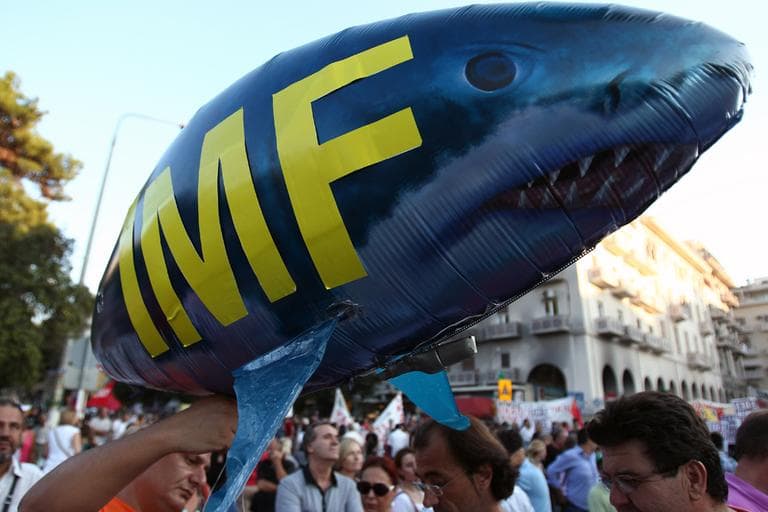Advertisement
A Global Recession?
ResumeThe IMF warns the danger of a new global slowdown – another recession – is “alarmingly high.” We’ll look at the odds and how to beat them.

Behind everything else – behind meningitis and Nobel Prizes and Big Bird and debates – there is still the issue of how we’re going to eat and live and work and have a roof over our heads. That is, the issue of the economy. This week, the IMF is putting up warning flares again. The risk of a new global slowdown, global recession, it says, is – quoting them – “alarmingly high”.
In Europe, 80 percent likelihood. And it bleeds out from there. Nobody wants to go back in that hole. Too much pain. How do we avoid it?
This hour, On Point: as America prepares to vote, avoiding another bust.
-Tom Ashbrook
Guests
Simon Johnson, professor of entrepreneurship and economics at the M.I.T. Sloan School of Management. Co-author with James Kwak of “White House Burning: The Founding Fathers, Our National Debt, and Why it Matters To You.” He blogs at The Baseline Scenario.
Joseph Gagnon, senior fellow at the Peterson Institute for International Economics.
From Tom's Reading List
Bloomberg "The International Monetary Fund cut its global growth forecasts as the euro area’s debt crisis intensifies and warned of even slower expansion unless officials in the U.S. and Europe address threats to their economies."
Wall Street Journal "France, Spain and several other euro-zone governments won't hit budget deficit targets agreed with European authorities, the International Monetary Fund said Tuesday, setting the stage for a contentious debate over whether the governments should pursue more cuts or allow the targets to slip."
Project Syndicate "Central banks on both sides of the Atlantic took extraordinary monetary-policy measures in September: the long awaited “QE3” (the third dose of quantitative easing by the United States Federal Reserve), and the European Central Bank’s announcement that it will purchase unlimited volumes of troubled eurozone members’ government bonds. Markets responded euphorically, with stock prices in the US, for example, reaching post-recession highs."
This program aired on October 10, 2012.